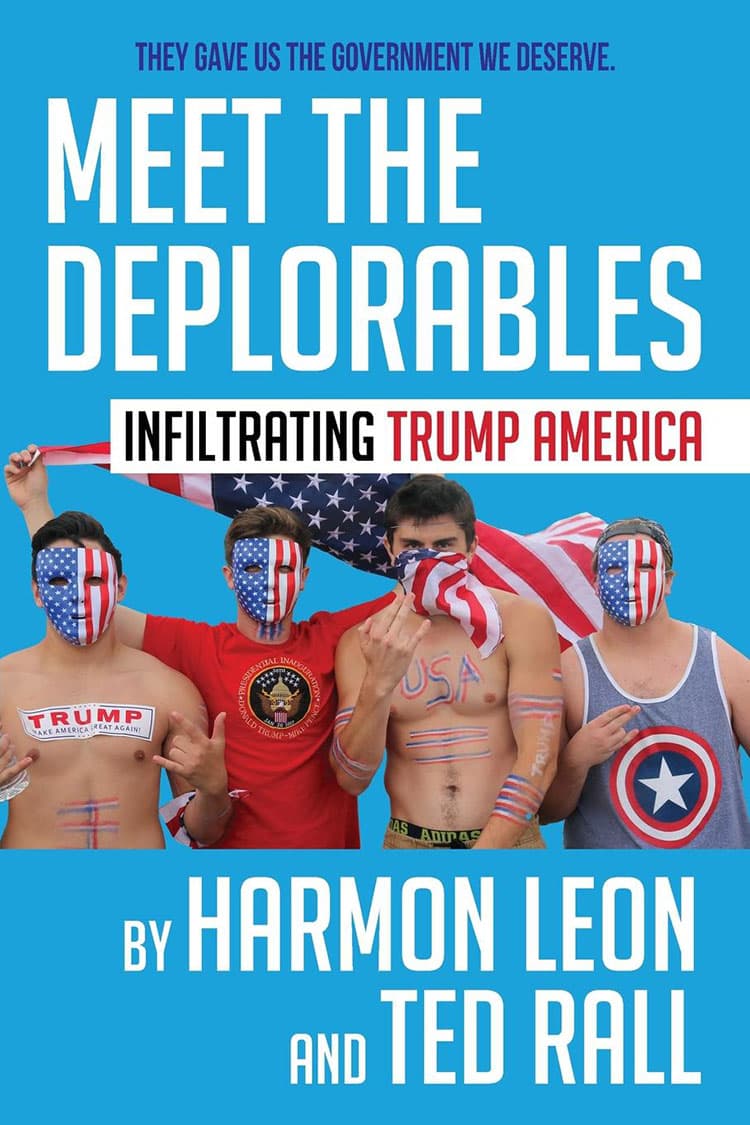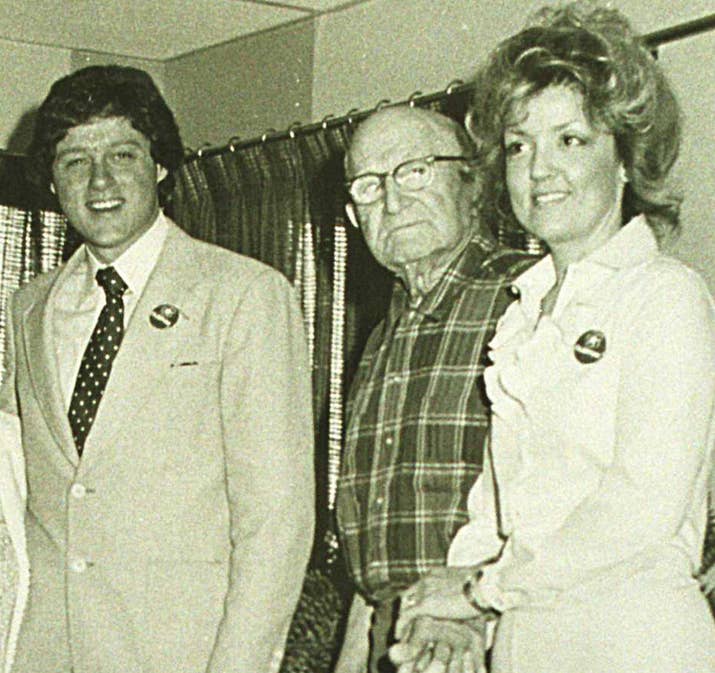Publication Date: December 12, 2017
Order at Indiebound!
Order at Amazon!
Order at Barnes and Noble.
Legendary infiltration journalist Harmon Leon is at it again, this time teaming up with ferocious political cartoonist Ted Rall answer the question most of America has been asking: “What the hell happened in 2016?” In their new book, Meet the Deplorables: Infiltrating Trump America, Leon goes deep undercover into the heart of Trump America, and Rall–two-time winner of the RFK Journalism Award and a Pulitzer Prize finalist–adds an innovative extra dimension to the book with his own essays and full-color cartoons.
Running throughout Meet the Deplorables, Rall’s distinctive artwork enhances the insightful and often irreverent tone employed by Leon–an award-winning New York journalist whose stories have appeared in VICE, Esquire, The Nation, and National Geographic. In his inimitable Gonzo-style, Leon’s carefully crafted narrative is designed to help us understand (and humanize) the “deplorables,” a word used by Hillary Clinton during the 2016 campaign to describe the racist, sexist, homophobic, and xenophobic supporters of Donald J. Trump.
For the sake of humor and satire, Leon ventures where elite coastal journalists dare not: deep into Red State territory, where his audacious accounts vicariously take readers on a journey of enlightenment by providing a fresh and first-hand perspective of right-wing subcultures and those most adversely affected by Trump’s appalling policies on immigration, healthcare reform, and race relations. His exploits include:
– visiting an anti-Muslim hate group during the height of Islamophobia
– knocking door-to-door as a canvasser for the Trump campaign
– joining a conversion therapy group that tries to “turn” homosexuals straight
– attending a gun store wedding where couples seal vows by firing assault rifles
– watching fanatics receive free Trump tattoos
– participating in a Christian purity ring ceremony in Ohio.
This unique collaboration between the formidable team of Harmon Leon and Ted Rall holds up a mirror to modern conservative life and reflects a reality that is outrageous, entertaining, and always illuminating.
Current Events/Biography, 2017
39 West Press Hardback, 6″x9″, 240 pp., $27.95
To Order A Personally Signed Copy directly from Ted:



 “The tape, without question, is real.”
“The tape, without question, is real.”
 From Clarence Thomas to Jerry Sandusky to Bill Cosby to Harvey Weinstein, those who doubt their accusers always ask something similar to what
From Clarence Thomas to Jerry Sandusky to Bill Cosby to Harvey Weinstein, those who doubt their accusers always ask something similar to what  When the Kevin Spacey story first broke, he stood accused of one act of wrongdoing:
When the Kevin Spacey story first broke, he stood accused of one act of wrongdoing: